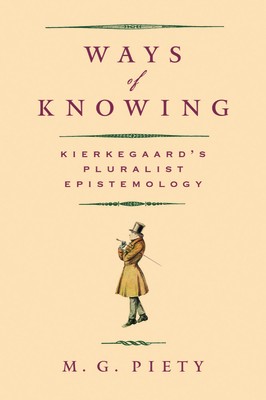
- We will send in 10–14 business days.
- Author: M G Piety
- Publisher: Baylor University Press
- ISBN-10: 1602583463
- ISBN-13: 9781602583467
- Format: 15.2 x 22.9 x 1.2 cm, softcover
- Language: English
- SAVE -10% with code: EXTRA
Reviews
Description
Kierkegaard is considered one of the most important thinkers of the nineteenth century, but until now very little scholarly work had been done on his epistemology. As M. G. Piety explains, this is a serious problem, as Kierkegaard's views on our ways of knowing are, and must be, intimately related to his view on religious faith and its role in human experience. Thus, in Ways of Knowing, Piety offers the first book-length exploration of Kierkegaard's views on knowledge, an epistemology that she argues is both foundationalist and nonfoundationalist, substantive and procedural, and includes both internalist and externalist theories of belief justification. In developing, then, a general outline of Kierkegaard's views, Piety provides the foundational material for future contextualizing and comparative scholarship.
EXTRA 10 % discount with code: EXTRA
The promotion ends in 20d.21:45:12
The discount code is valid when purchasing from 10 €. Discounts do not stack.
- Author: M G Piety
- Publisher: Baylor University Press
- ISBN-10: 1602583463
- ISBN-13: 9781602583467
- Format: 15.2 x 22.9 x 1.2 cm, softcover
- Language: English English
Kierkegaard is considered one of the most important thinkers of the nineteenth century, but until now very little scholarly work had been done on his epistemology. As M. G. Piety explains, this is a serious problem, as Kierkegaard's views on our ways of knowing are, and must be, intimately related to his view on religious faith and its role in human experience. Thus, in Ways of Knowing, Piety offers the first book-length exploration of Kierkegaard's views on knowledge, an epistemology that she argues is both foundationalist and nonfoundationalist, substantive and procedural, and includes both internalist and externalist theories of belief justification. In developing, then, a general outline of Kierkegaard's views, Piety provides the foundational material for future contextualizing and comparative scholarship.


Reviews